
Daun Penh: The Historical Heartbeat of Phnom Penh
Daun Penh, located in the bustling center of Phnom Penh, is a neighborhood rich in history and cultural significance. Named after Lady Penh, the legendary founder of Phnom Penh, this area offers a unique blend of historical landmarks, vibrant markets, and charming riverside views. As you stroll through Daun Penh, you'll discover the grandeur of the Royal Palace, an architectural marvel that serves as the royal residence of the King of Cambodia. Nearby, the Silver Pagoda dazzles visitors with its floor lined with silver tiles and its impressive collection of Buddha statues. The National Museum, housing the world's finest collection of Khmer art, is another must-visit, offering a deep dive into Cambodia's rich heritage. Daun Penh is also home to the bustling Central Market (Psar Thmei), an Art Deco masterpiece where you can find everything from fresh produce and local delicacies to handmade crafts and souvenirs. Don't miss a walk along Sisowath Quay, a picturesque riverside promenade lined with cafes, restaurants, and shops, offering stunning views of the confluence of the Tonle Sap and Mekong rivers. In the evenings, Daun Penh comes alive with a vibrant nightlife scene, featuring everything from traditional Khmer performances to modern bars and live music venues. Whether you're a history buff, a foodie, or just looking to soak in the local culture, Daun Penh has something to offer for everyone.
Local tips in Daun Penh
- Visit early in the morning to avoid the heat and crowds at popular landmarks like the Royal Palace and Silver Pagoda.
- Bargain politely at the Central Market; it's a common practice and part of the local shopping experience.
- Try local street food, especially the traditional Khmer dishes such as Amok and Lok Lak, for an authentic culinary experience.
- Wear comfortable shoes as you'll be doing a lot of walking, especially when exploring the riverside promenade and markets.
- Keep an eye on your belongings, particularly in crowded areas, to avoid any potential pickpocketing.
Daun Penh: The Historical Heartbeat of Phnom Penh
Daun Penh, located in the bustling center of Phnom Penh, is a neighborhood rich in history and cultural significance. Named after Lady Penh, the legendary founder of Phnom Penh, this area offers a unique blend of historical landmarks, vibrant markets, and charming riverside views. As you stroll through Daun Penh, you'll discover the grandeur of the Royal Palace, an architectural marvel that serves as the royal residence of the King of Cambodia. Nearby, the Silver Pagoda dazzles visitors with its floor lined with silver tiles and its impressive collection of Buddha statues. The National Museum, housing the world's finest collection of Khmer art, is another must-visit, offering a deep dive into Cambodia's rich heritage. Daun Penh is also home to the bustling Central Market (Psar Thmei), an Art Deco masterpiece where you can find everything from fresh produce and local delicacies to handmade crafts and souvenirs. Don't miss a walk along Sisowath Quay, a picturesque riverside promenade lined with cafes, restaurants, and shops, offering stunning views of the confluence of the Tonle Sap and Mekong rivers. In the evenings, Daun Penh comes alive with a vibrant nightlife scene, featuring everything from traditional Khmer performances to modern bars and live music venues. Whether you're a history buff, a foodie, or just looking to soak in the local culture, Daun Penh has something to offer for everyone.
Iconic landmarks you can’t miss
Royal Palace
Explore Cambodia's Royal Palace in Phnom Penh: A dazzling display of Khmer architecture, history, and the enduring legacy of the Cambodian monarchy.
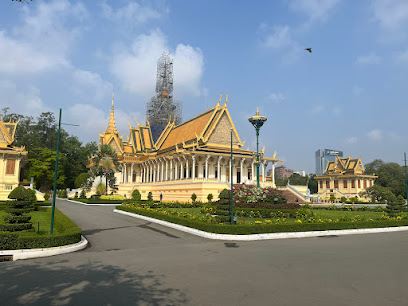
Wat Phnom Daun Penh
Discover Wat Phnom, the historical and spiritual heart of Phnom Penh, offering a tranquil escape and a glimpse into Cambodian heritage.
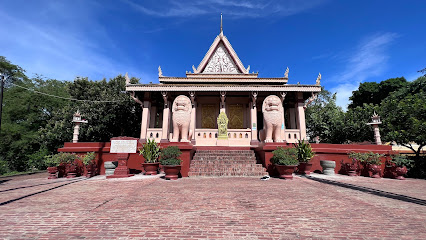
Independence Monument
A majestic lotus-shaped monument in Phnom Penh, celebrating Cambodia's independence and honoring its heroes.

Silver Pagoda
Discover dazzling treasures and sacred history at Phnom Penh's Silver Pagoda, a glittering jewel within the Royal Palace complex.
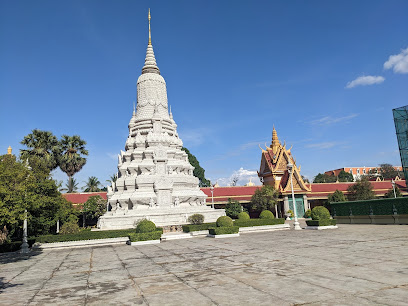
Statue of His Majesty Preah Bat Samdech Preah Norodom Sihanouk
A poignant tribute to King Norodom Sihanouk, a revered figure in Cambodian history, symbolizing national unity and independence, located near the Independence Monument.
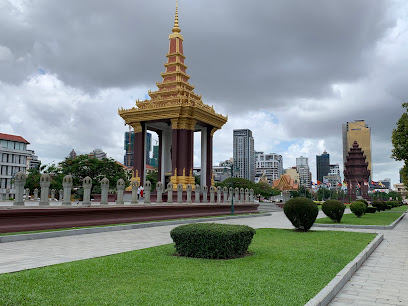
Wat Ounalom Monastery
Discover the spiritual heart of Cambodia at Wat Ounalom, a historic Buddhist monastery in Phnom Penh with stunning architecture and serene gardens.
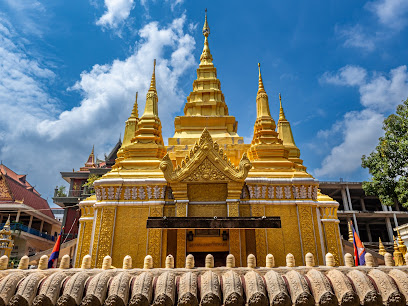
Statue of Samdech Choun Nath
Discover the legacy of Samdech Choun Nath, a pivotal figure in Cambodian history, at this serene memorial park in Phnom Penh, celebrating Khmer language and culture.
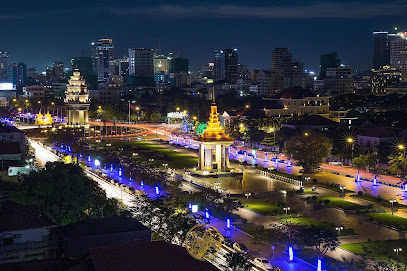
The Giant Clock of Phnom Penh
A Phnom Penh icon, the Giant Clock offers a glimpse into the city's history and culture, set amidst a bustling urban landscape.
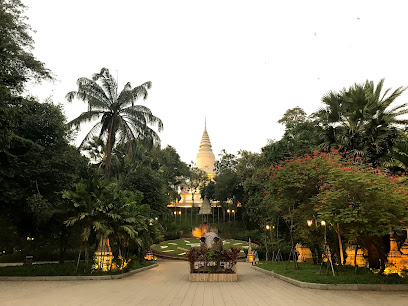
Mondap Hill
Discover Phnom Penh's historical charm and panoramic views from Mondap Hill, a serene landmark offering a tranquil escape.
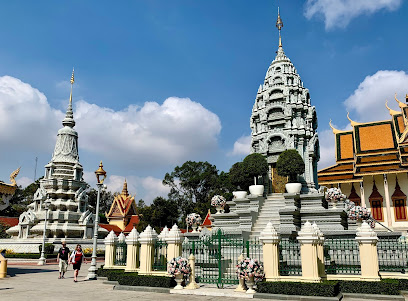
Independence Monument Daun Penh
A towering lotus-shaped monument in Phnom Penh, commemorating Cambodia's independence and honoring its heroes, surrounded by tranquil gardens.
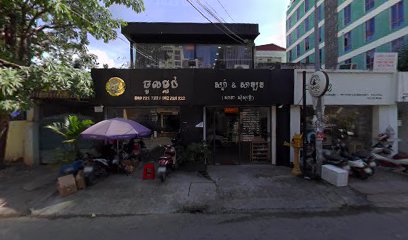
Unmissable attractions to see
Tuol Sleng Genocide Museum
Explore the Tuol Sleng Genocide Museum in Phnom Penh, a profound site of reflection on Cambodia's tragic history and the resilience of its people.
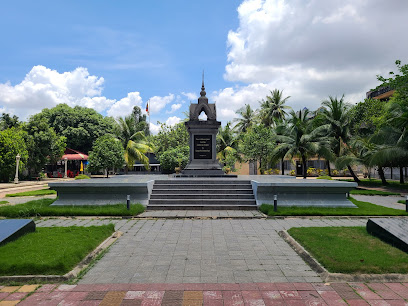
National Museum of Cambodia
Discover a millennium of Khmer art and culture at Phnom Penh's National Museum, a treasure trove of Cambodian heritage.
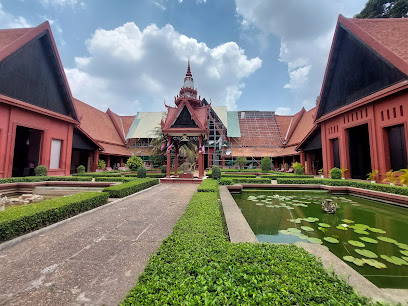
Royal Palace Park
A tranquil escape in Phnom Penh offering scenic views of the Royal Palace, lush gardens, and a vibrant local atmosphere.
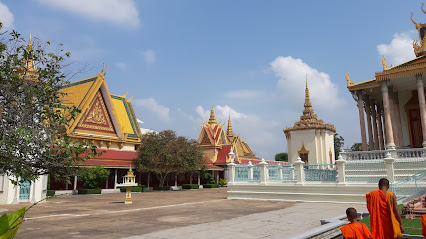
Silver Pagoda
Experience the cultural heart of Phnom Penh at the Silver Pagoda, where stunning architecture meets rich Cambodian heritage.
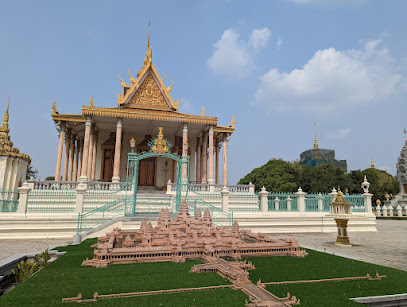
Statue of His Majesty Preah Bat Samdech Preah Norodom Sihanouk
Discover the rich heritage of Cambodia at the Statue of His Majesty Preah Bat Samdech Preah Norodom Sihanouk, a historic landmark in Phnom Penh.
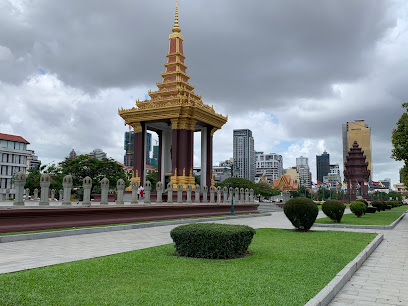
Statue of King Sisowath
A majestic Phnom Penh landmark honoring King Sisowath, a symbol of Cambodia's royal legacy and modernization efforts.
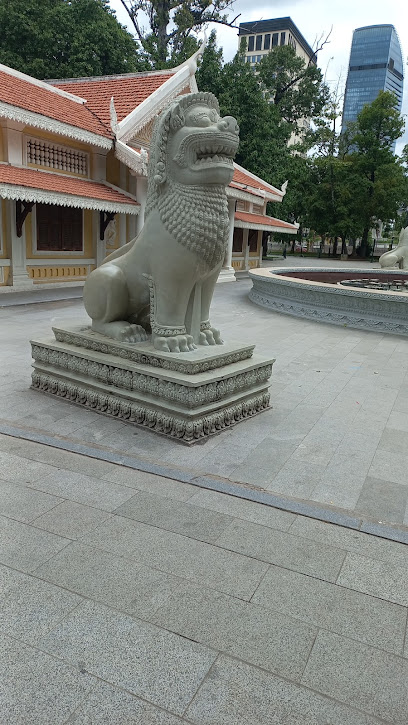
Essential places to dine
David's Restaurant Homemade Noodles
Discover the authentic taste of Cambodia at David's Restaurant Homemade Noodles, where every dish is crafted from traditional recipes.
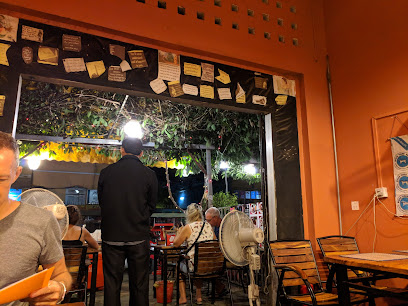
Titanic Restaurant
Experience authentic Cambodian cuisine at Titanic Restaurant on St Preah Sisowath Quay with stunning riverside views.
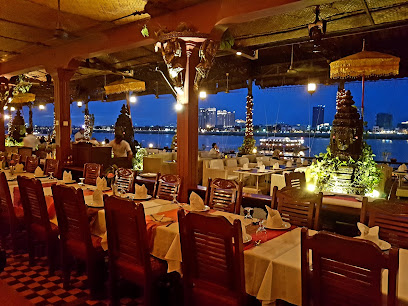
Khmer Surin Restaurant
Experience authentic Cambodian cuisine in a culturally rich setting at Khmer Surin Restaurant in Phnom Penh.
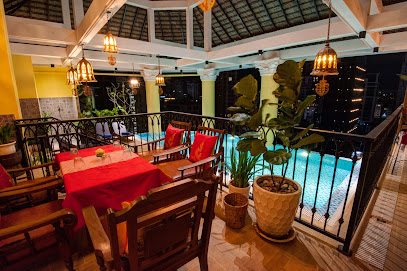
Oskar Bistro Phnom Penh
Experience exquisite dining at Oskar Bistro in Phnom Penh – where local flavors meet international cuisine along the riverside.
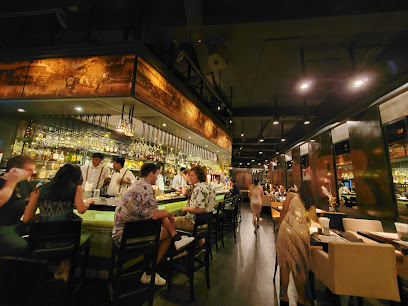
Restaurant Cuisine Wat Damnak - Phnom Penh
Discover exquisite Cambodian cuisine with a modern twist at Cuisine Wat Damnak, Phnom Penh's top destination for fine dining.
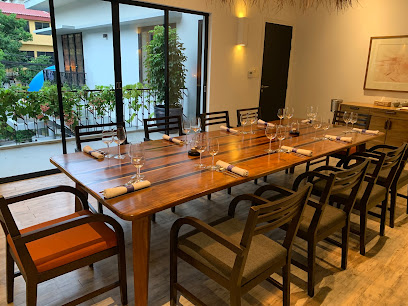
Sombok Restaurant
Experience the authentic flavors of Cambodia at Sombok Restaurant along the scenic riverside in Phnom Penh.
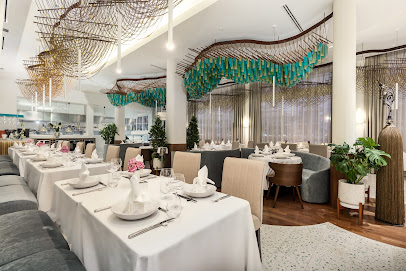
Mealea Restaurant, Fine Dining, Western & Traditional Asian Cuisine
Experience exquisite Western & Traditional Asian cuisine at Mealea Restaurant in Chumne - a fine dining destination for every food lover.
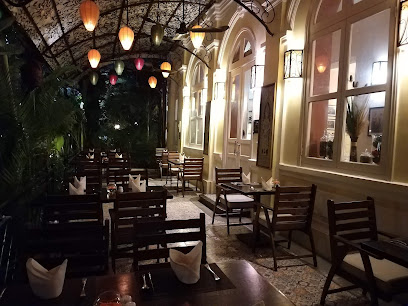
La Ferme de Bassac Restaurant
Discover the rich flavors of Cambodia at La Ferme de Bassac, where fresh ingredients meet traditional cooking in a charming setting.
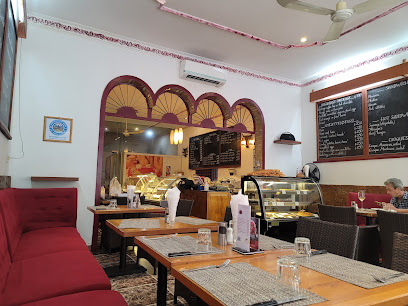
Baldwin's Bistro
Experience culinary artistry at Baldwin's Bistro in Phnom Penh – where local flavors meet international cuisine.
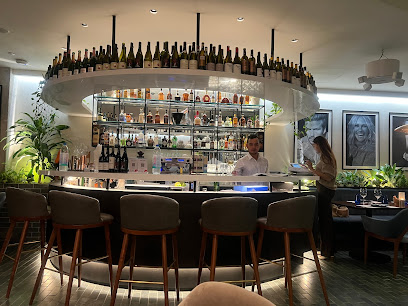
Unique Restaurant and Guesthouse
Discover authentic Indian cuisine at Unique Restaurant and Guesthouse in Phnom Penh—a culinary gem offering unforgettable flavors and cozy accommodations.
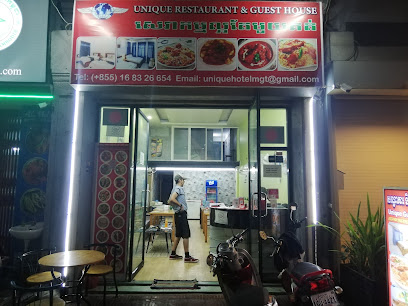
Markets, malls and hidden boutiques
Pink House
Explore the Pink House in Phnom Penh for an authentic selection of souvenirs and local crafts, celebrating Cambodia's rich cultural heritage.
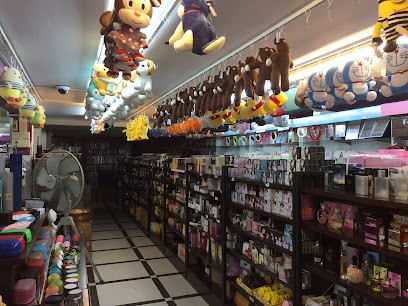
Senteurs d'Angkor (Phnom Penh)
Discover the essence of Cambodia at Senteurs d'Angkor, where authentic gifts, aromatic delights, and local craftsmanship await.
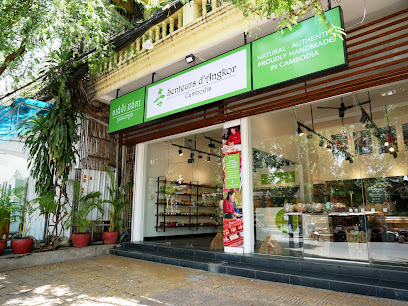
A.N.D
Explore A.N.D in Phnom Penh – a boutique where local craftsmanship meets contemporary fashion, perfect for unique souvenirs.
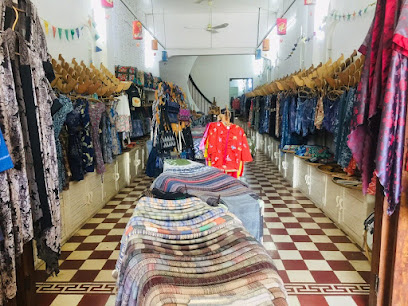
Artisan Village
Explore the rich tapestry of Cambodian craftsmanship at Artisan Village, where local artisans bring their creativity to life in stunning handmade products.
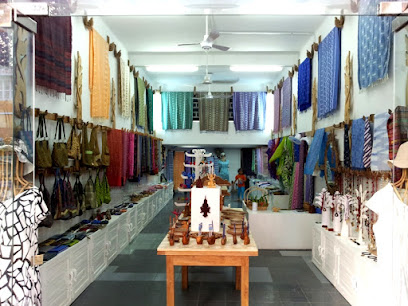
H Collection
Discover unique treasures and local craftsmanship at H Collection, the boutique in Phnom Penh that celebrates culture through fashion and art.
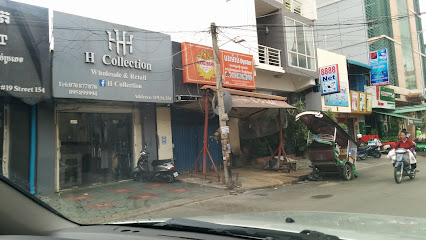
Aixin Premium gift
Explore Aixin Premium Gift in Phnom Penh for unique souvenirs and local handicrafts that embody the rich culture of Cambodia.
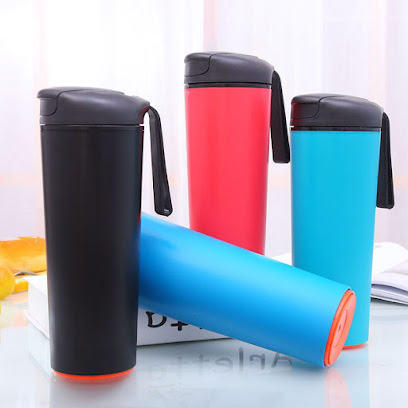
Stylish Shop
Explore the essence of Cambodian fashion at Stylish Shop, where modern trends meet local craftsmanship in the heart of Phnom Penh.

Phnom Penh Souvenir Shop
Discover the essence of Cambodia at Phnom Penh Souvenir Shop, where unique handcrafted treasures await every traveler.
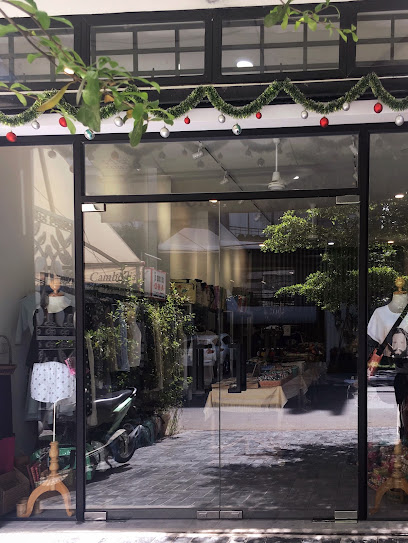
Apsara Penh Chet Souvenir Shop
Discover authentic Cambodian souvenirs at Apsara Penh Chet Souvenir Shop, where culture and craftsmanship come together.
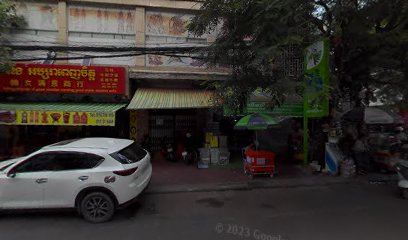
អ៊ែលវ៉ាយ
Explore Elvay Gift Shop in Phnom Penh for unique handcrafted souvenirs, exquisite jewelry, and authentic Cambodian handicrafts.
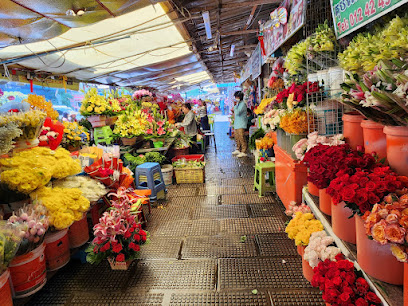
Essential bars & hidden hideouts
Le Moon Rooftop
Experience breathtaking views and exquisite cocktails at Le Moon Rooftop, Phnom Penh's premier bar and lounge destination.
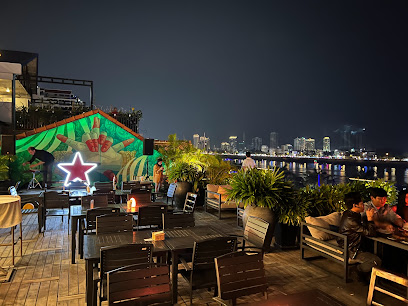
Bouchon Wine Bar
Immerse yourself in the vibrant ambiance of Bouchon Wine Bar, where exquisite French cuisine meets an extensive wine selection and live music.
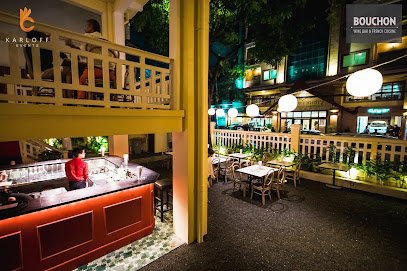
Botanico Craft Beer Garden
Explore Botanico Craft Beer Garden in Phnom Penh for exquisite craft beers, delicious food, and vibrant live music in a lush outdoor setting.
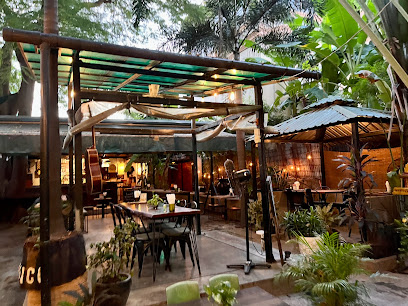
Sora Bar
Sora Bar offers a luxurious sky-high escape with stunning views, exquisite cocktails, and a vibrant atmosphere in the heart of Phnom Penh.
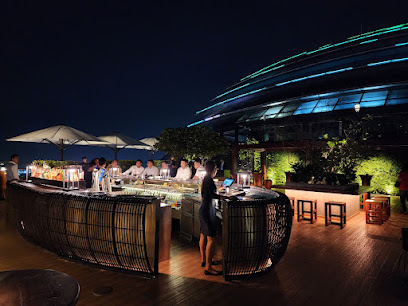
BATTBONG Speakeasy Bar . Bistro
Discover the hidden speakeasy charm of BATTBONG in Phnom Penh, where delightful drinks and cozy ambiance await every visitor.
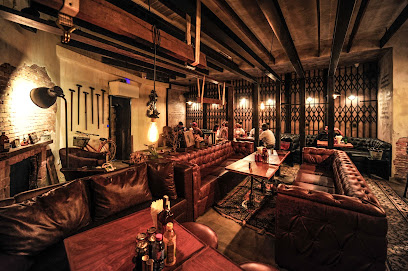
Elephant Bar
Experience the vibrant nightlife of Phnom Penh at the Elephant Bar, where local culture meets a lively atmosphere and delightful drinks.
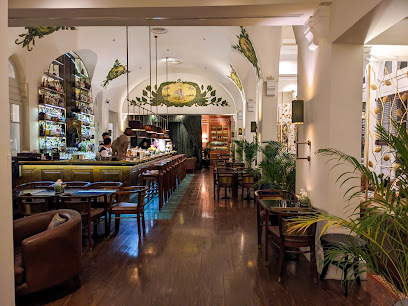
Shanghai Bar and Restaurant
Experience the finest Chinese cuisine and vibrant nightlife at Shanghai Bar and Restaurant in the heart of Phnom Penh.
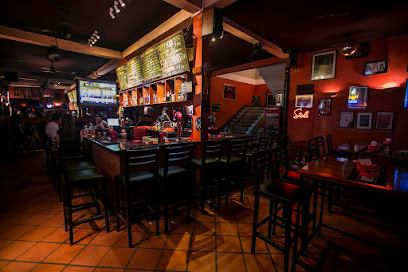
Voodoo Boulevard Cocktail Bar
Experience the vibrant nightlife at Voodoo Boulevard Cocktail Bar, Phnom Penh's premier destination for cocktails, live music, and unforgettable moments.
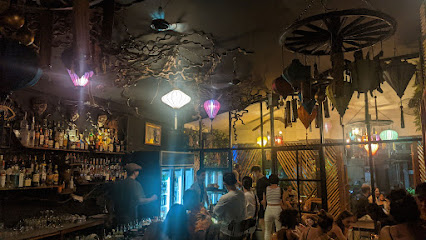
ARCH Lounge - Cocktails, Whiskey & Wine Bar
Indulge in handcrafted cocktails and fine wines at ARCH Lounge, Phnom Penh's premier destination for sophisticated nightlife.
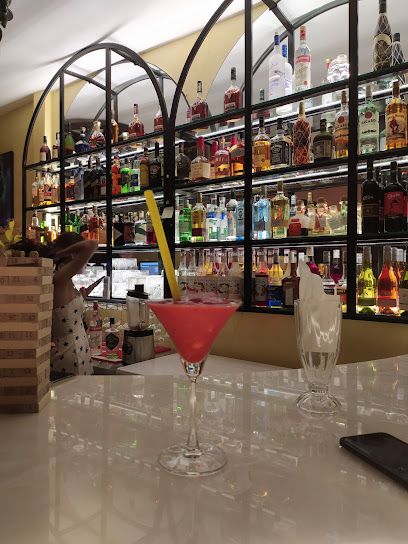
Blue Pub ( The Best Entertainment Place )
Experience the heart of Phnom Penh's nightlife at Blue Pub, the ultimate destination for fun, drinks, and live entertainment.
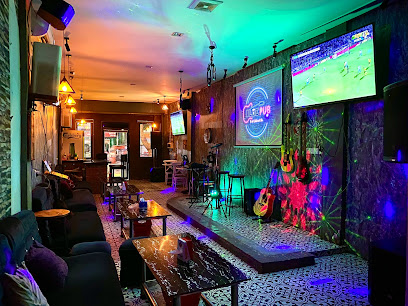
Local Phrases
-
- Helloសួស្តី
[sou sdei] - Goodbyeលាស់ហើយ
[leahay] - Yesបាទ/យល់ព្រម
[baat/yeah prohm] - Noទេ
[te] - Please/You're welcomeសូម
[som] - Thank youអរគុណ
[aw kohn] - Excuse me/Sorryសូមអត់
[som ot] - How are you?អ្នកសុខសប្បាយទេ?
[neak sok sabay te?] - Fine. And you?សុខសប្បាយ ហើយ អត់
[sok sabay leahay] - Do you speak English?លេងលើទានហาฬមនា?
[ling lay tien heh man na?] - I don't understandខ្ញុំមិនយល់ទេ
[knhom min yeah te]
- Helloសួស្តី
-
- I'd like to see the menu, pleaseខ្ញុំចង់មើលម៉េនុយមួយកន្តរ
[knhom jong mar menouy muoy knoat] - I don't eat meatខ្ញុំមិនទិញសម
[knhom min tien sam] - Cheers!ជរស្លាប
[chol solap] - I would like to pay, pleaseខ្ញុំចង់ទូរទស្សន៍រួម
[knhom jong tourtoss roo muoy]
- I'd like to see the menu, pleaseខ្ញុំចង់មើលម៉េនុយមួយកន្តរ
-
- Help!គ្រប់គ្រង
[krob krong] - Go away!លោកលោកចេញ
[lok lok cherng] - Call the Police!ហាងការប្រទាន
[hang kar prateah] - Call a doctor!ហាងការជំងឺ
[hang kar chom nkoy] - I'm lostខ្ញុំផ្លាស់
[knhom pleh] - I'm illខ្ញុំសរសរ
[knhom sorsor]
- Help!គ្រប់គ្រង
-
- I'd like to buy...ខ្ញុំចង់ទិញ...
[knhom jong tien...] - I'm just lookingខ្ញុំដើរមុខទេ
[knhom dael muk te] - How much is it?តើវាគឺជាប៉ុន្មាន?
[tve veak chea bonman?] - That's too expensiveមានតម្លៃពិបាក
[man tamleay pibak] - Can you lower the price?អ្នកអាខុងតម្លៃបានទេ?
[neak akhang tamleay ban te?]
- I'd like to buy...ខ្ញុំចង់ទិញ...
-
- What time is it?វេលាគិតទេ?
[velea kit te?] - It's one o'clockវេលាមួយ
[velea muoy] - Half past (10)ការបួសពីរ
[kak buos pii] - Morningព្រឹក
[preuk] - Afternoonល្ងាច
[lngeach] - Eveningយប់
[yaob] - Yesterdayម្សិល
[msul] - Todayថ្ងៃនេះ
[tngai ney] - Tomorrowថ្ងៃស្អែក
[tngai sark] - 1មួយ
[muoy] - 2ពីរ
[pii] - 3បី
[bei] - 4បួស
[buos] - 5ប្រាំ
[praam] - 6បុស្ស
[bos] - 7ប៉េ
[bei] - 8បីលាប
[bei leab] - 9កង
[kaung] - 10ដប់
[dop]
- What time is it?វេលាគិតទេ?
-
- Where's a/the...?ខេត្តណា ឬ...
[khet na e...] - What's the address?អាសយដ្ឋានជា?
[asyadetchna chea?] - Can you show me (on the map)?អ្នកអាចបង្ហាញខ្ញុំបានទេ?
[neak ak banghachanh knhom ban te?] - When's the next (bus)?ពេលនៅរបស្មានជា?
[pel nov romsman chea?] - A ticket (to ....)សំបុត្រ (ទៅ...)
[sambot (to...)]
- Where's a/the...?ខេត្តណា ឬ...
History of Daun Penh
-
Daun Penh is closely tied to the legend of Lady Penh, who is said to have founded Phnom Penh in the 14th century. According to the story, she discovered a statue of the Buddha in a tree along the banks of the Mekong River. Inspired by this discovery, she built a temple on a hill, which became the foundation of the city. This event marked the beginning of Phnom Penh's significance as a cultural and religious center.
-
During the French colonial period in the late 19th and early 20th centuries, Daun Penh underwent significant urban transformation. The French introduced European architectural styles, road systems, and infrastructure improvements. This era saw the establishment of public buildings, schools, and cultural institutions, which laid the groundwork for modern Phnom Penh.
-
The Khmer Rouge regime from 1975 to 1979 had a devastating impact on Daun Penh and the broader Phnom Penh area. Many residents were forced from the city, and numerous cultural sites were destroyed. The neighborhood, once vibrant, became a symbol of the tragic history of Cambodia, marked by loss and repression during this dark chapter.
-
After the fall of the Khmer Rouge, the 1980s and 1990s were marked by efforts to rebuild Daun Penh. International aid and local initiatives aimed at restoring the neighborhood's infrastructure and cultural heritage. This period saw the revival of markets, businesses, and educational institutions, contributing to Phnom Penh's resurgence as a vital urban center.
-
In recent years, Daun Penh has evolved into a vibrant cultural and commercial hub. The neighborhood is now home to numerous cafes, galleries, and boutique shops, reflecting a blend of traditional and contemporary Cambodian culture. Events and festivals showcase local art and cuisine, attracting both locals and tourists, thus redefining the area's identity within the modern landscape of Phnom Penh.
Daun Penh Essentials
-
Daun Penh is centrally located in Phnom Penh, making it easily accessible from other neighborhoods. You can reach Daun Penh from the airport by taxi or rideshare, which takes about 30 minutes. From areas like BKK1 or Riverside, you can walk or take a tuk-tuk, which is a popular and affordable mode of transport. Local buses also connect to Daun Penh, but they may not be the most convenient option for tourists.
-
Daun Penh is a walkable neighborhood, with many attractions within close proximity. Tuk-tuks are readily available for hire and are a great way to explore the area. Motorbike taxis are also popular for shorter distances. While there is no train service, local buses operate in and out of Daun Penh, connecting to other parts of the city. Bicycles can be rented for a more immersive experience, and some areas have bike lanes.
-
Daun Penh is generally safe for tourists, but it's important to stay vigilant. Be cautious in areas like the riverside at night, known for petty crimes such as pickpocketing and bag snatching. Avoid walking alone after dark in less crowded areas. Always secure your belongings and be aware of your surroundings, particularly in crowded markets and tourist sites.
-
In case of emergency, dial 116 for police assistance or 118 for ambulance services in Cambodia. It is advisable to have travel insurance that covers emergencies. For minor health issues, pharmacies are available throughout Daun Penh, and there are also hospitals and clinics nearby. Always keep a list of emergency contacts and your hotel address handy.
-
Fashion: Do dress modestly, especially when visiting temples and religious sites. Avoid revealing clothing. Religion: Do respect local customs and traditions; remove your shoes when entering temples. Public Transport: Do be courteous to fellow passengers and avoid loud conversations. Don't eat or drink on public transport. Greetings: Do greet people with a smile and a handshake. Avoid touching the head of an adult, as it is considered disrespectful. Eating & Drinking: Do try local dishes and drinks; don’t refuse food offered by locals, as it can be seen as rude.
-
To experience Daun Penh like a local, visit the Central Market for fresh produce and local crafts. Join a cooking class to learn about Khmer cuisine or take a stroll along the Tonle Sap River at sunset. Engage with local vendors and ask for recommendations on lesser-known eateries. Don’t miss the opportunity to explore the historic sites like the Royal Palace and the National Museum, and consider visiting on weekdays to avoid tourist crowds.
Nearby Cities to Daun Penh
-
Things To Do in Kep
-
Things To Do in Kampot
-
Things To Do in Sihanoukville
-
Things To Do in Kratie
-
Things To Do in Phu Quoc
-
Things To Do in Can Tho
-
Things To Do in Ho Chi Minh City
-
Things To Do in Koh Rong
-
Things To Do in Koh Kong
-
Things To Do in Siem Reap
-
Things To Do in Battambang
-
Things To Do in Vung Tau
-
Things To Do in Trat
-
Things To Do in Phan Thiet
-
Things To Do in Buon Ma Thuot











